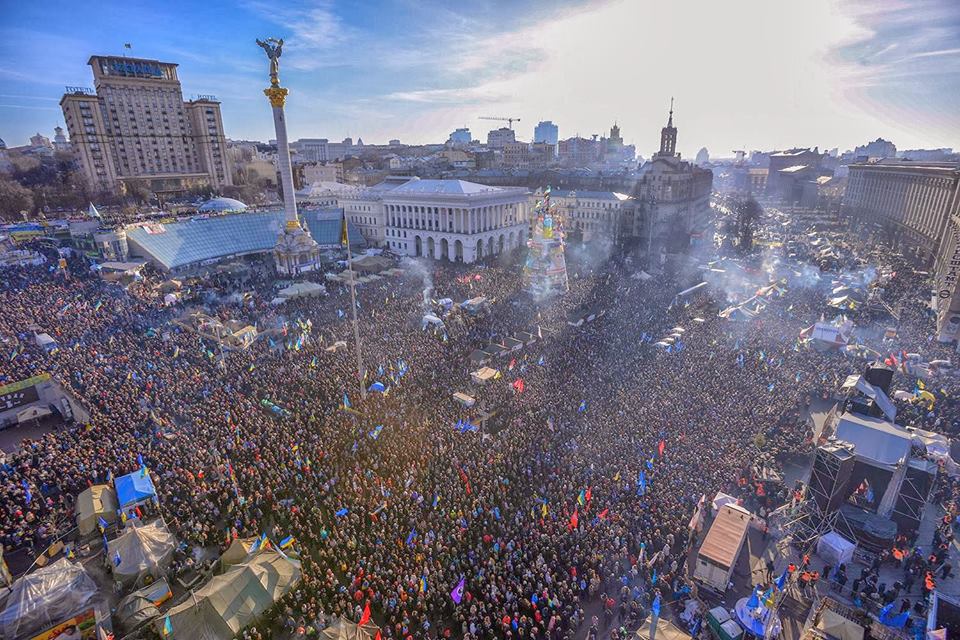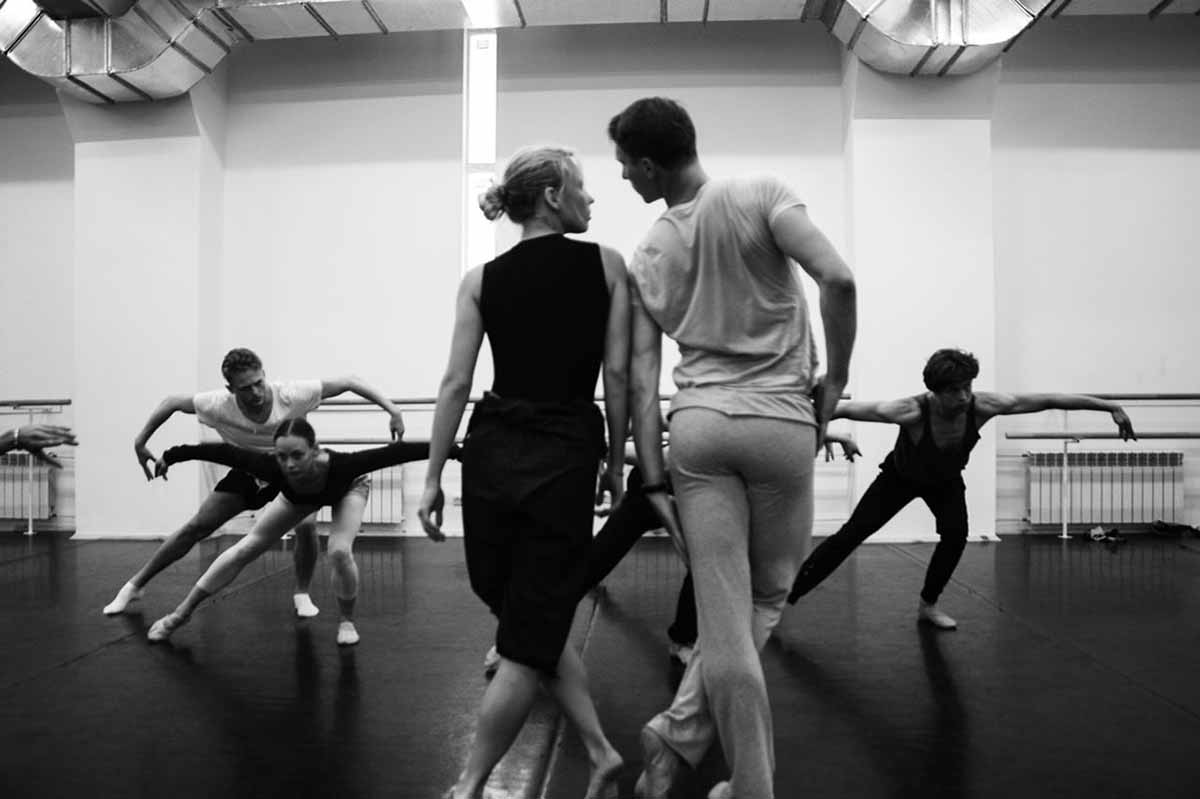This year, Ukraine celebrated the 25th anniversary of its independence. It seems that Ukraine is still in search of its identity. We often hear the term “Kozak state”. What do these words mean?
The idea of a “Kozak state” was revived especially for the younger generation, for school programs. Perhaps it reinforces a sense of identity for Ukrainians. Paradoxically, Ukrainian universities don’t offer many courses about Soviet Ukraine, except for studies of certain tragic historical events, such as the Holodomor (famine/genocide instigated by Stalin in the early 1930s-Ed.), or mass deportation of Ukrainian peasants to Siberia. I believe that the term “Kozak state” is an invention – there was no clearly-named political system in Ukraine in the 16th – 17th centuries. There were no clearly-defined borders, no currency, no civil jurisdiction – only military jurisdiction – and only the highest military officers were elected.
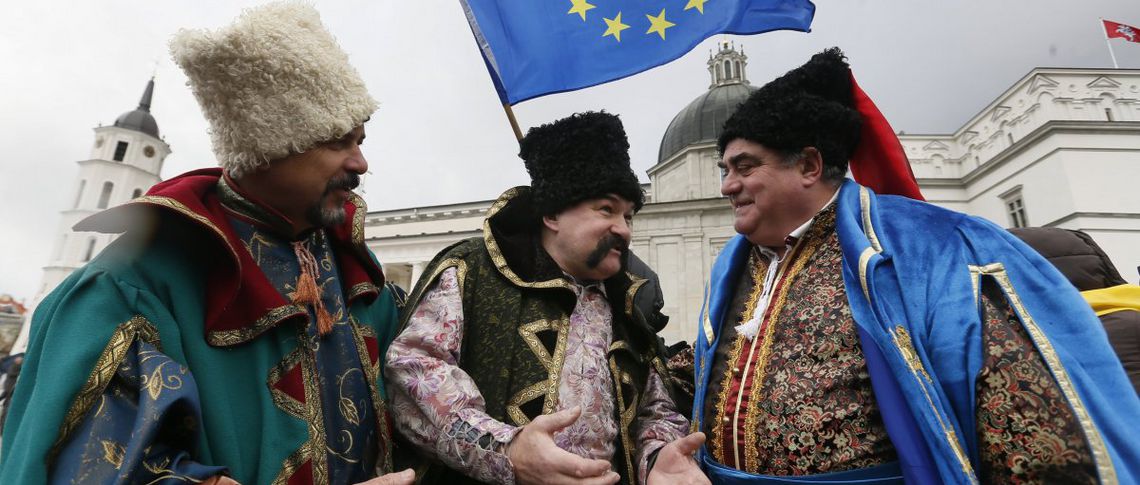
Is this reference to history a means to strengthen the Ukrainian identity?
Actually, it explains why Ukrainians don’t like Russians. I’m not saying that all Ukrainians are different, but Russian and Soviet identity was similar – it referred to the collective. Everyone did what they were told. Ukrainians had an anarchist mentality, more individualistic. People wanted to be free; they had no respect for government authority or laws. It’s the same now…
How is this expressed?
Well, for example, it’s very hard to explain to Ukrainians that they have to live like Europeans. Why they must pay taxes. They know that they must, but they say: “If we had normal, civilized politicians, then we’d pay our taxes”.
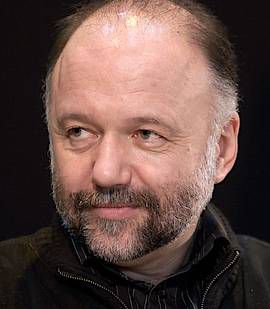
Do you think that the majority of Ukrainians feel European? But, what kind of Europe are we talking about?
About Poland’s Europe, about our neighbours’ Europe, and not the Europe of Brussels. Ukrainians look more to Eastern Europe: Poland, Lithuania, the Czech Republic, Slovakia, Romania and Hungary. Ukrainians who live in the Carpathian Mountains still think of Europe in terms of the Austro-Hungarian monarchy. There’s a strange nostalgia for the imperial and royal monarchy, even among Ukrainian writers. They write a lot about it. The most recent example is the book “Felix Austria” by Sofiya Andrukhovych, daughter of poet Yuriy Andrukhovych.
Ukrainians consider themselves pro-European, but it doesn’t necessarily mean that they like the orders and laws imposed by Brussels?
Yes, that’s right, because Brussels is too far away. Some politicians and intellectuals like to invoke a Brussels-like Europe. Most Ukrainians are pro-European, but for them it means living without corruption, with equal and fair laws for all citizens.
And so they hope to achieve that through EU membership, right?
No, people don’t speak too much about EU membership.
So, do you mean they talk more about European values?
Yes, it’s more about European values and traditions, and justice.
Does the EU internal market play an important role?
For business – of course, but for ordinary people it really doesn’t matter.
In your opinion, what sparked Euromaidan and the protests against President Viktor Yanukovych?
I think it was a repeat scenario of what Ukraine experienced from 1945 to the beginning of the 1960s – resistance against the Soviet regime and army after World War II. Euromaidan was in the same vein – resistance against the corrupt Donetsk elite which had occupied all of Ukraine. Yanukovych implemented a Soviet-like system. When the Party of Regions won the majority in parliament, and Yanukovych became president in 2010, representatives of Donetsk and Donbas took over the most important posts in the judicial and customs spheres of our country. These people were corrupt and communicated in Russian. Ukrainian-speaking and not Russian-speaking kleptocrats are more or less accepted in Western Ukraine. Euromaidan was a revolution against corruption, which was personified by Viktor Yanukovych and Mykola Azarov, that is, the Donbas and business elite.
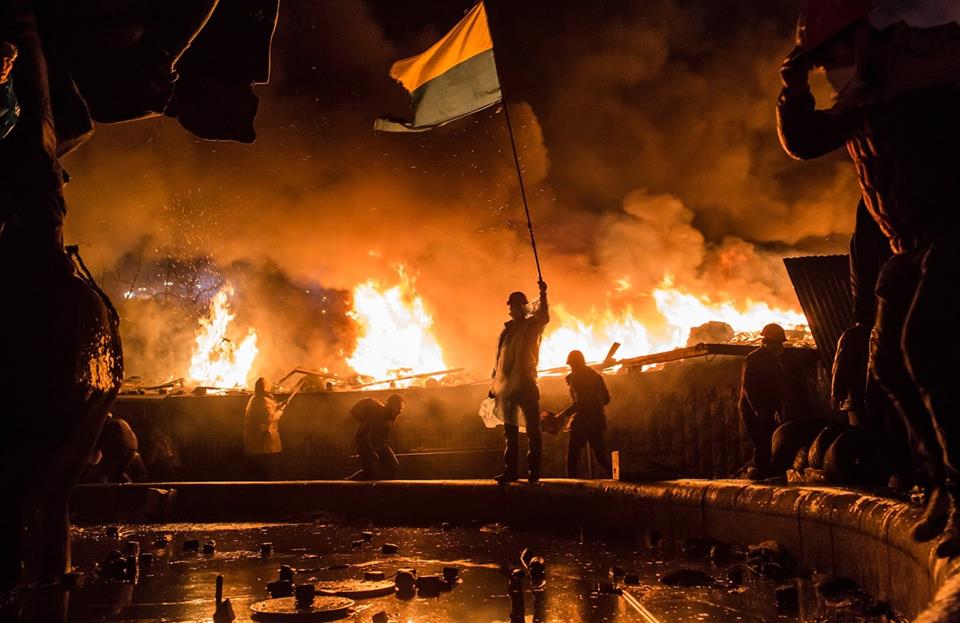
Were there other reasons?
Everyone who took part in Euromaidan had his/her own reasons. For example, many people in the southern and eastern regions had personal problems with civil servants and government authorities.
What do you think about the allegations that the protests were managed by the United States?
That’s just plain funny! The revolution started spontaneously and no one knew what would happen. It all began with student protests in Lviv and Kyiv on November 21, 2013. The students wanted the Prime Minister to sign the Association Agreement with the European Union. Student representatives stated that their protests weren’t politically oriented; they just wanted the government to fulfill its promises. The situation changed after the first outbreak of violence on November 29, when young kids and journalists were violently beaten by police and berkut forces. The next day, hundreds of thousands of people turned up on the Maidan in Kyiv, both local residents and people from neighbouring towns and villages. The protests became more political.
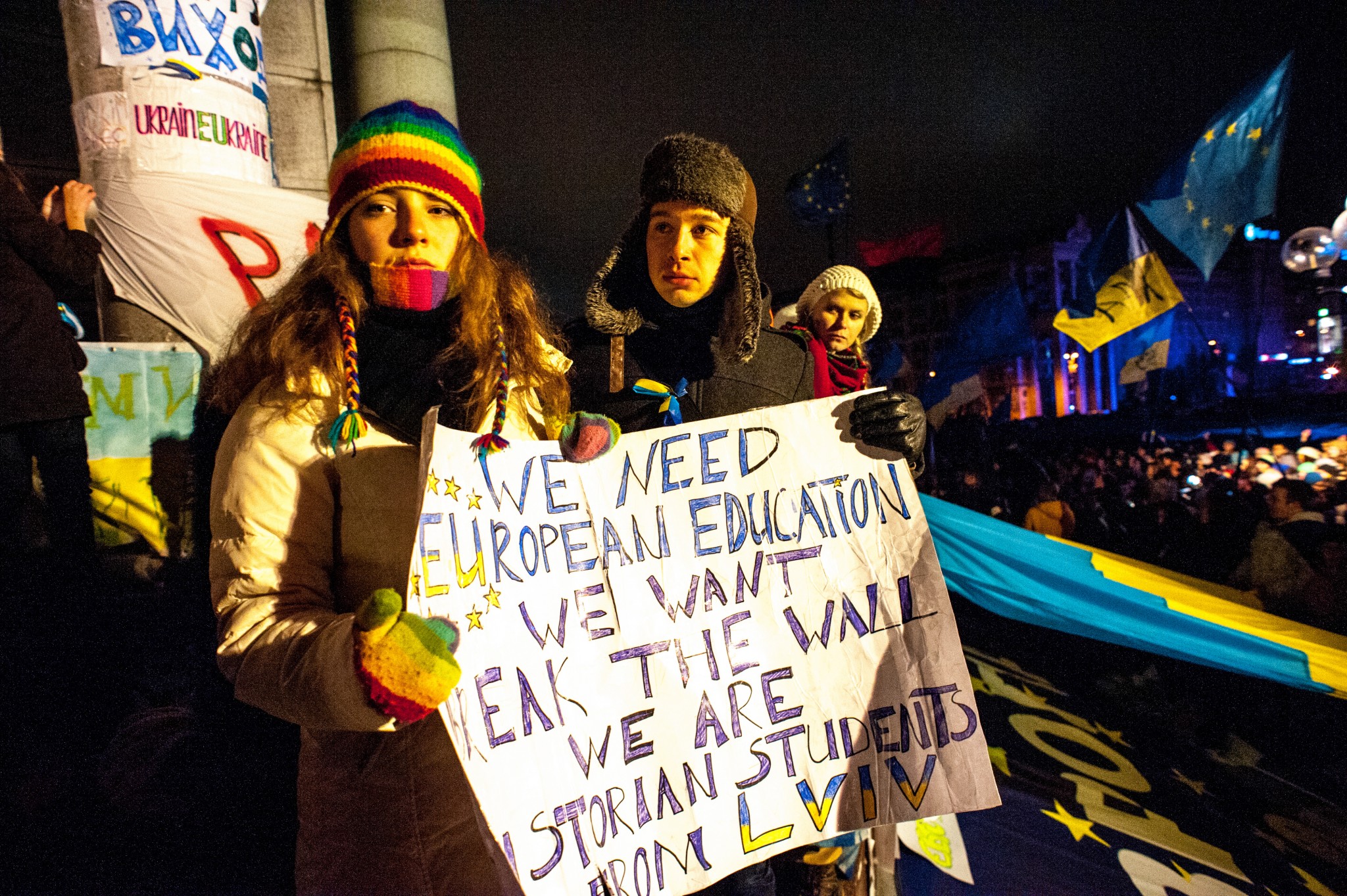
At first, in Lviv, the political party Svoboda tried to manipulate the students, claiming that Svoboda members had organized the rallies. In fact, one of Svoboda’s leaders in Lviv, Yuriy Mykhalchyshyn got up onstage and publicly urged the students to follow the party’s orders. But, after he’d been pushed off the stage, he declared that the protests had been organized by Yanukovych himself! There were a lot of intrigues at the beginning….
Starting from November 29, 2013, it was actually the middle class that financed the rallies. People organized buses and supplied protesters with food and drink. It was very chaotic. The opposition leaders (Petro Poroshenko, Arseniy Yatseniuk, Oleh Tyahnybok, Vitaliy Klitshko-Ed.) kept trying to take over and manage the protests. However, they never succeeded. All of them had less than 30 percent support from the protesters. People didn’t want to see politicians on the stage.
What might “normal” relations with Russia look like?
Currently, we can only have an economic relationship because there are very large differences between Ukrainian and Russian politics and the interests of the political elite of both countries. In addition, Russia has used its culture as a weapon against Ukraine. I think it will be very difficult to build new relations, whether they be cultural or political. We can start by re-establishing economic relations, trade and commerce.
How important are the Minsk Agreements?
Very important! However, this document has many nuances that each side can interpret in its own way. The main thing is to control the border between Russia and the Donbas – 470 km that are currently controlled by Russian forces and separatists. It’s impossible to hold elections or referendums if Ukraine isn’t allowed to control its own borders. This would mean that Russian troops and Crimea would take part in the elections, and not the people who live there.
Where do you see Ukraine in ten years?
Ukraine will be much closer to Europe geopolitically, but economically it will probably be at the same level as Poland today.




